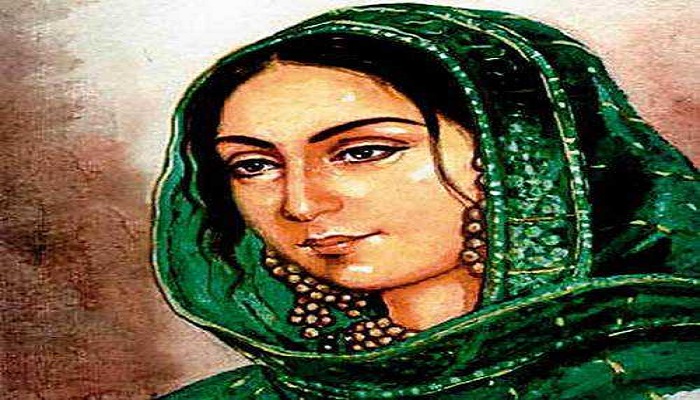
Begum Hazrat Mahal was a great Indian freedom-fighter who played a major role during India’s First War of independence (1857-58). She was also known as the Begum of Awadh (Oudh) and was the wife of the then Lucknow ruler, Nawab Wajid Ali Shah. Her maiden name was Muhammadi Khanum, and she has bestowed the title ‘Hazrat Mahal’ after the birth of their son, Birjis Qadr. Behind Begum Hazrat Mahal’s graceful nature and physical charm lay the qualities of a strong leader and an adroit strategist, which were strongly witnessed through her contributions to India’s first struggle for independence against the British.
In the 1850’s, when the British were ruthlessly expanding their control across India, they came across the province of Oudh, which was then an erstwhile seat of art, culture, and literature. They eventually annexed Oudh in 1856, exiling Nawab Wajid Ali Shah to Kolkata, thus leaving the kingdom without a leader and in a chaotic mess. It was then when Begum Hazrat Mahal took over the reigns, despite her divorce from the Nawab, she took charge of the affairs of The state of Awadh.
Combining strengths with the revolutionary forces of the First War of Independence, she was soon successful in seizing Lucknow from the British. She crowned her son as royal heir of Awadh. Named the ‘Lakshmi Bai’ of Oudh, she supported fellow mutineers like Nana Saheb immensely, counter-offered the British offers provided to great rulers like Rana Jang Bahadur of Nepal, and greatly motivated the masses to rebel against the British Raj. Such was her devotion and pledge to her people that the Begum even went on to fortify the city of Lucknow against the advancing British troops. After a long siege, Lucknow was again recaptured by the British, forcing Hazrat Mahal to retreat in 1858. She spent the remaining years of her life in Nepal, passing away in 1874 in Kathmandu.
Despite being an icon of India’s first Freedom Struggle, Hazrat Mahal’s mausoleum lies in a misfortunate shape after vandalism and she was forgotten at the recent centenary of the “First War of Independence” held in Uttar Pradesh, becoming a lost hero in the pages of Indian history. However, for her immeasurable contributions to Indian Independence, the Government of India issued a commemorative stamp in the honor of Begum Hazrat Mahal on 10th May 1984.

Post Your Comments